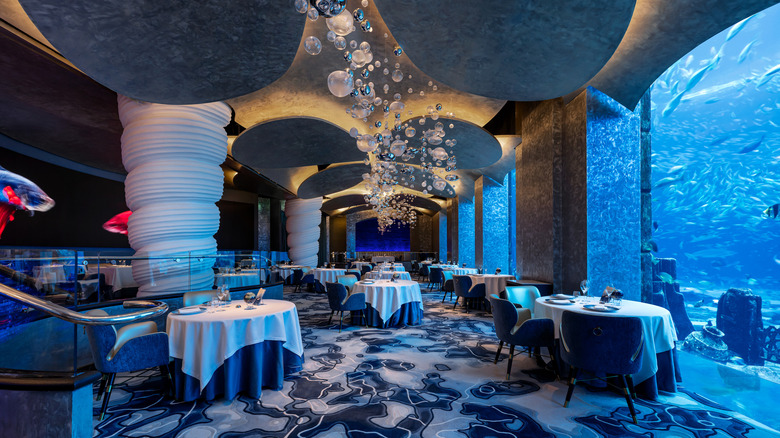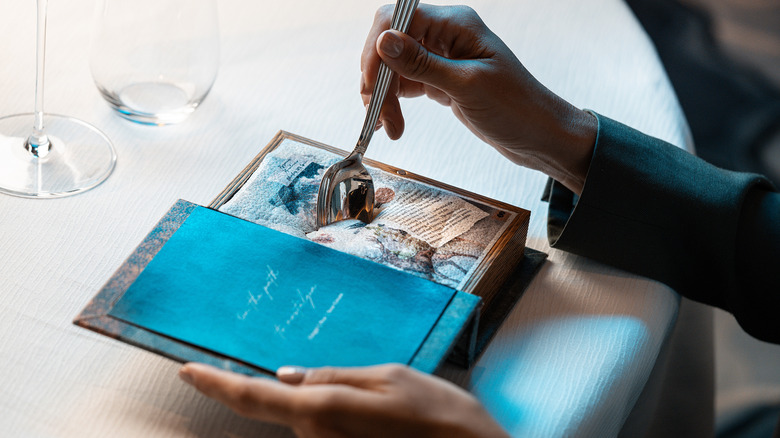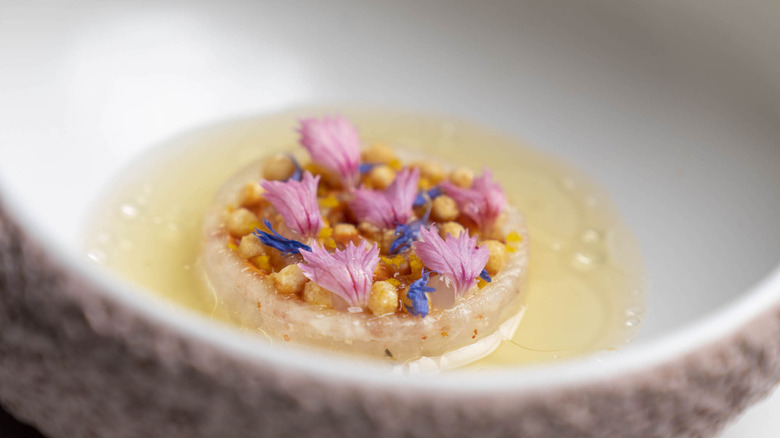The Making Of A Memory: How Attention To Detail Creates Unforgettable Dining Experiences
Researchers have sought to understand what contributes to positive dining experiences. Behavioral, social, intellectual, affect, and sensory criteria all impact whether or not customers will recall their experiences positively — or forget them. Even without the science, I know this to be true firsthand thanks to an incredible dining experience in Dubai.
Let me set the scene: As immaculately plated dishes were gently placed in front of me by the team at Michelin-winning Ossiano, I already knew I would remember this meal forever. The service complemented an impressively thought-out menu at every turn, from my glasses of wine that were seemingly never empty, or the second plating of a mushroom dish I loved and all but inhaled that appeared the table as if by magic. But the icing on the cake? Early in my meal, a waiter discreetly whispered, "I noticed you're left-handed, would you like for me to arrange the settings accordingly?" This has never happened, and it has stuck with me.
When it comes to fine dining, these small gestures matter immensely. "Details are what makes the difference, they all add up to create a unique experience," Ossiano's General Manager Julien Gardin told me. Many businesses do not have the resources to create such experiences. Some do not care. With the rise of fast casual dining and food delivery options, convenience has trumped attentive, thoughtful service, and pleasure and delight are often overshadowed by affordability and accessibility across a large swath of the restaurant industry. Take-out containers and microwaveable meals may provide nourishment, but they lack the kind of associations that pave the way to unforgettable memories. And this makes immaculate fine dining experiences all the more valuable.
The evolution of dining
Although businesses strive to develop relationships with clients, the mastery seen at the highest levels of hospitality is second to none. How did such thoughtful dining experiences come to be — and why are they seemingly rare in the expansiveness of the ever-changing restaurant industry? From anticipating a customer's entrance to the last dish served, creating memories is the ultimate event planning, a result of careful consideration and practice. "I love the idea that everything has a reason and a place to be," Gardin explained.
In 1765, A. Boulanger was the first to offer diners choices from his Parisian soup shop. Before his restaurant, customers simply ate whatever was provided. Service-oriented concepts continued to evolve when in 1782, Antoine Beauvilliers' La Grande Taverne de Londres served fine foods in a pretty environment. The French Revolution ushered additional changes to the hospitality landscape, as unemployed chefs who once served upper-class families opened restaurants for average civilians to sample dishes once made for the rich. By the early 19th century, restaurants commonly provided gourmet food and wines to those with the means to partake, and collaborations like the one between Cesar Ritz and Auguste Escoffier sparked the discovery of such experiences, and helped export them around the globe, further fueled by Michelin Guide recommendations.
In the last several decades, the dining landscape has widened exponentially. And while fast casual restaurants and fast food options offer affordability and convenience, a clear delineation has formed between businesses that provide meals and those that provide premium service. Without the resources to indulge in higher-quality experiences, not to mention a consumer base that has grown and evolved, the bare minimum has become the standard in many cases.
The price of a memory
So how exactly do fine dining restaurants orchestrate such elevated experiences? "Details are so specific that it goes beyond music and dining room temperature — it includes table set up, glassware, crockery, the temperature of the cutleries, the weight of a glass, the sharpness of a knife, and many more," said Gardin. When a diner pays a premium, details make the difference. Unlike casual environments and bank account-friendly bills, fine dining is focused on experience: Diners know they will swipe a card at the end of the service, but the promise of a special memory justifies the cost. Whether it is immaculate cleaning or the timed arrival of plates, focused thoughtfulness elevates a regular meal into an unforgettable one. Some places, like Ossiano, knock this idea out of the park — and this is before even mentioning the literal aquarium that encompasses the restaurant.
It takes a team of dedicated experts to pull it all together. "I believe that fine dining front-of-house people are considered to be the best in the business because we are attentive to everything and aim not to miss a detail," Gardin explained. "This allows us to anticipate. For this, we must be actively observing, to collect information and act." Granted, such attention comes with a price, but the reward is a collection of moments that make such an impression you remember the meal for years to come. Certain occasions call for it, and it is these kinds of elevated experiences that keep customers dreaming about more.


